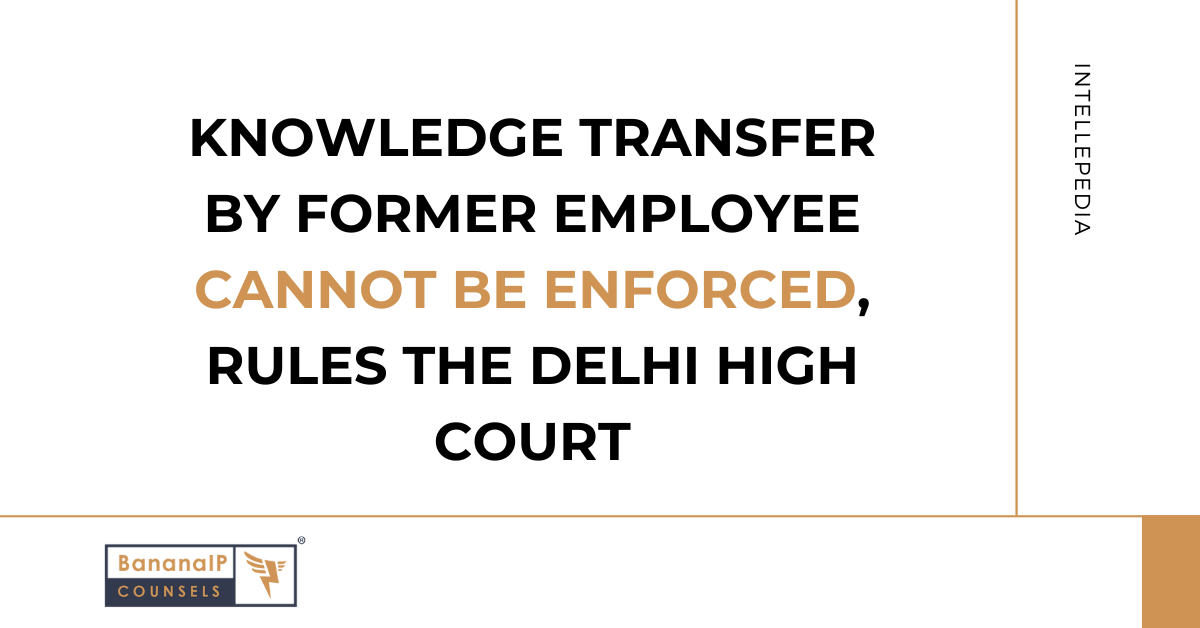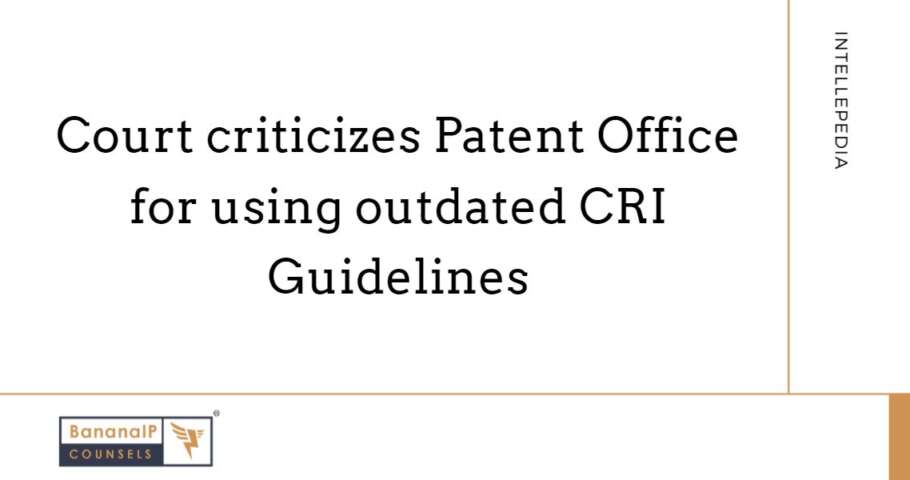In a case relating to the misuse of proprietary information and breach of an employment agreement, Nayan India Science and Technologies Pvt. Ltd. (“Nayan India”) sought an interim injunction against its former employee, Tushar Maurya. Particularly, Nayan India sought the transfer of knowledge by Maurya by visiting its office.
Nayan India claimed that Tushar Maurya, who resigned and joined a competitor, had not returned proprietary information and confidential data, as stipulated in his employment agreement. The plaintiff sought an injunction to prevent Maurya from using or sharing their confidential information and requested him to complete exit formalities, including transferring all work-related knowledge.
Nayan India’s arguments were based on clauses in the employment agreement that required Maurya to return all company property and not retain any copies of confidential information. The plaintiff presented evidence suggesting that Maurya had shared a critical SSH key with his personal email, potentially compromising proprietary data. The plaintiff argued that this action necessitated immediate judicial intervention to prevent further misuse.
In response, Maurya’s defense rested on the argument that he had already complied with the exit formalities and transferred all required knowledge twice. He also contended that the employment agreement’s terms could not be specifically enforced, as they involved personal service, which is generally not subject to specific performance under Section 14 of the Specific Relief Act, 1963.
The court, upon reviewing the facts and legal precedents, held that it could not grant a mandatory injunction to compel Maurya to visit the plaintiff’s office to transfer knowledge, as this would amount to enforcing a contract of personal service. Citing Section 14 of the Specific Relief Act and previous judgments, the court emphasized that specific performance of personal service contracts cannot be mandated, especially when mutual trust between the parties has eroded.
The court noted that Maurya had already stated that he fulfilled his obligations and disputed the plaintiff’s claims of incomplete knowledge transfer. Given these circumstances, the court concluded that Nayan India did not establish a prima facie case or balance of convenience in its favor. As the potential loss to the plaintiff could be compensated in monetary terms, the court dismissed the application for interim relief.
Citation: Nayan India Science and Technologies Pvt. Ltd. v. Tushar Maurya & Ors., CS(COMM) 526/2024 & I.A. 31760-61/2024 (H.C. Delhi July 8, 2024). Available at: http://indiankanoon.org/doc/9427753/, Visited on: 22/07/2024.
Employment Terms, Personal Service, and Specific Performance
Relevant paragraphs from the Judgment read as follows:
“16. This Court also rejects the submission made by learned counsel appearing for the plaintiff that the plaintiff is not asking the defendant to rejoin the service, but only requesting him to visit the office of the plaintiff for transfer of knowledge, that he gained during the subsistence of his employment. No employee can be compelled to deal with another party against his or her wish and the same is barred in view of Section 14(c) of the Specific Relief Act, 1963.
16. Service of personal nature is dependent on mutual trust, faith and confidence and no person can be compelled to enter into a relationship involving mutual faith and confidence, against his will, when mutual trust has been lost between the parties. Thus, Supreme Court in the case of Percept D’mark (India) (P) Ltd. Versus Zaheer Khan & Another, has held as follows:
…
58. We have perused the relevant portions of Niranjan Shankar Golikari [(1967) 2 SCR 378 : MR 1967 SC 1098] , Superintendence Co. of India [(1981) 2 SCC 246] and Gujarat Bottling [(1995) 5 SCC 545] which have been extracted by the learned Judges of the Division Bench and quoted in extenso. In the circumstances, there can be no manner of doubt that the Division Bench was right in coming to the prima facie conclusion drawn by it, and in setting aside the Single Judge’s order. No case was made out by the appellant for compelling Respondent 1 to appoint the appellant as his agent in perpetuity. In view of the personal nature of the service and relationship between the contracting parties, a contract of agency/management such as the one entered into between the appellant and Respondent 1 is incapable of specific performance and to enforce the performance thereof would be inequitable. Likewise, grant of injunction restraining the first respondent would have the effect of compelling the first respondent to be managed by the appellant, in substance and effect a decree of specific performance of an agreement of fiduciary or personal character or service, which is (2006) 4 SCC 227 dependent on mutual trust, faith and confidence.
59.The appellant can be adequately compensated in terms of money if injunction is refused. In our view, grant of injunction, in the present case, would result in irreparable injury and great injustice to the first respondent which is incapable of being remedied in monetary terms, as he would be compelled to enter into a relationship involving mutual faith, confidence and continued trust against his will.“
(Emphasis Supplied)
18. Likewise, holding that a contract of personal service cannot ordinarily be specifically enforced, Supreme Court in the case of, Executive Committee of Vaish Degree College, Shamli & Others Versus Laxmi Narain & Others, has held as follows:
“….
18. On a consideration of the authorities mentioned above, it is, therefore, clear that a contract of personal service cannot ordinarily be specifically enforced and a court normally would not give a declaration that the contract subsists and the employee, even after having been removed from service can be deemed to be in service against the will and consent of the employer. This rule, however, is subject to three well recognised exceptions — (i) where a public servant is sought to be removed from service in contravention of the provisions of Article 311 of the Constitution of India; (ii) where a worker is sought to be reinstated on being dismissed under the Industrial Law; and (iii) where a statutory body acts in breach or violation of the mandatory provisions of the statute.“
(Emphasis Supplied)
19. It would make no difference to the circumstance that the plaintiff is praying only for limited visit of the defendant nod to the office of the (1976) 2 SCC 58 plaintiff for performance of task of transfer of knowledge, as no such mandatory injunction can be granted, in view of the law, as discussed herein. The prayer made by the plaintiff, is in the nature of performing contract of personal services/qualification, the specific performance of which, cannot.”
Disclaimer
The case note/s in this blog post have been written by IP Attorneys at BananaIP Counsels based on their review and understanding of the Judgments. It may be noted that other IP attorneys and experts in the field may have different opinions about the cases or arrive at different conclusions therefrom. It is advisable to read the Judgments before making any decisions based on the case notes.
If you have any questions, or if you wish to speak with an IP expert/attorney, please reach us at: contact@bananaip.com or 91-80-26860414/24/34.



